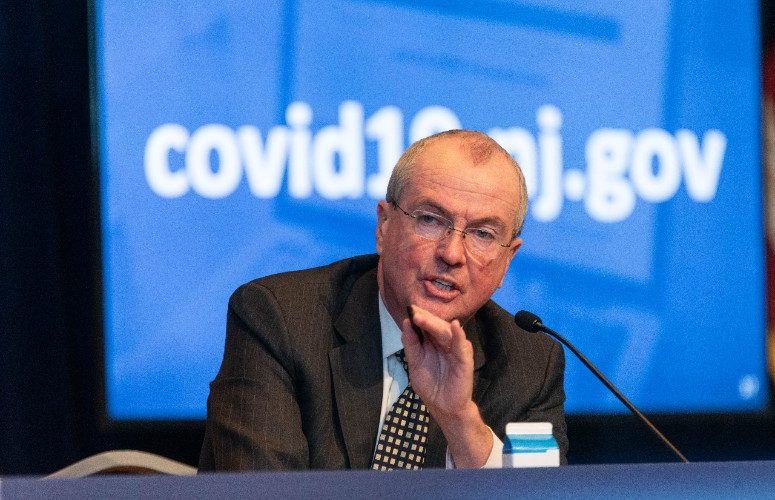
Agreement Reached on NJ COVID-19 Borrowing Legislation
By Jim Pytell, Assistant Editor On Jul 10, 2020Gov. Phil Murphy announced today that an agreement has been reached with Senate President Stephen Sweeney and Speaker Craig Coughlin on legislation that authorizes the state to borrow up to $9.9 billion to address the financial crisis created by COVID-19.
Murphy said at his COVID-19 press briefing he had “very productive meetings” both yesterday and this morning with Sweeny and Coughlin in regards to borrowing funds.
“We have an agreement on bonding, and the Senate will move legislation to provide our administration with the full authority we need to borrow the funds we need to keep our state afloat,” Murphy said.
Sweeney added that borrowing would only be authorized with approval from a legislative commission.
“This agreement will ensure we will have the resources needed to respond to this fiscal and economic crisis in a responsible way,” Sweeney said.
The legislative commission, dubbed the Select Commission on Emergency COVID-19 Borrowing, will act as a four-person panel comprised of two Senators and two members of the Assembly that would have to approve each request to borrow with a majority vote.
“Senator Paul Sarlo, chairman of the Senate Budget and Appropriations Committee, and I will serve on the commission as the Senate members and will fulfill our responsibility to meet the needs of the people of New Jersey,” Sweeny said.
The Senate Budget Committee will meet on July 14 to consider the legislation, and the full Senate will meet on July 16 to take it up.
In a written statement, New Jersey Business & Industry Association Vice President of Government Affairs Christopher Emigholz commented that “NJBIA recognizes that borrowing has a place in government fiscal policy and we are indeed upon extraordinary times where it may be appropriate in a limited manner. However, we find today’s announcement concerning as it appears to stop short of some of the necessary limits that would make for responsible borrowing.
“We do support the additional approval that would now be required by the new Legislative panel for this legislation and appreciate legislators’ efforts to add this potential limit to the borrowing. We also view the potential of 15% cuts in department budgets, as noted by Governor Murphy today, as a positive. But the same time, we have continually urged our policymakers about the importance of waiting to borrow anything beyond short-term bonds for cash flow.
“This restraint is critical until we have a better understanding of what our state’s needs are — including the strength of the 2019 tax returns arriving on July 15 and what support we can expect from the federal government – until we do more to reduce spending and until we embark on significant reforms.
“A total of $9.9 billion in bonds with 35-year maturity will cost New Jersey taxpayers at least many hundreds of millions of dollars in additional debt service costs for the next 35 state budgets. New Jersey already is one of the most indebted states in the nation and this makes our state less affordable now and into the future. Ultimately, today’s borrowing will just mean more of our budget will go toward paying debt instead of programs that benefit our residents. As we have previously stated, borrowing should never be a first option. It should instead only be pursued after serious and permanent spending cuts are found to pay for the new debt service, and that should include structural reforms. These are essential steps that should be taken first to bridge our great budget challenges.”
Additional Motor Vehicle Extensions
Separately, Murphy announced additional extensions for key motor vehicle expiration dates.
Licenses, registrations, inspection stickers and temporary tags that expired between March 13 and May 31, have been extended to September 30, and those expiring between June 1 and August 31 have been extended to December 31.
To access more business news, visit NJB News Now.
Related Articles:





